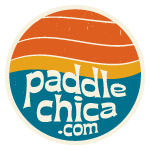As a former teacher and a current coach, I have been fortunate enough to be a part of the learning process of individuals. Whether it is academic material or athletic movements, learning new things is a difficult endeavor which can be frustrating. When newbies come out to paddle for the first time, it is important for coaches and teammates to remember that for most people paddling involves completely new body movements. We grow up kicking or throwing a ball, running, jumping, etc. Not many of us were lucky enough to grow up with a paddle in
A Rookie’s Guide to The Dragon Boat World Championships in Welland: Wise Words from Veteran Paddlers
If you are a rookie to Team USA, or your own country’s national team, this guide is for you. After all of the preparation, Welland is just about in sight, which means at this point everything you’ve been doing for the last two years will soon come down to a few minutes of racing on dragon boat’s biggest stage. The physical training is tough, but practices have taken care of preparing the body. What about the other parts of World Championships – the parts that nobody tells you about? That’s
No one likes to sit on the bench while the rest of the team competes. Everyone wants to be in the race. So, should a racing team only consist of 20 paddlers in order to avoid having paddlers sit out? That doesn’t really make sense. Every team has some paddlers who sit out more often than they compete in races, but does this make them any less of a teammate than the race crew? Definitely not. The role of the reserve paddlers (often called subs or spares) is simply different from the
Have you ever wondered what is it like to train for hours, making sacrifices, pushing yourself to new levels while preparing yourself for the Dragon Boat World Championship? Team USA paddler Bob Mina recounts his experience. Since 2008, a morning of practice starts the night before. I have to pack three bags – one with dry clothes for the drive to work, one with the clothes I’ll change into AT work, and one with my run gear for any mid-day mileage I can fit in. I move out of the
As competitive adults in a competitive sport, we see paddlers of varying talents either develop into top-notch athletes or hamper their own progress. How is that an athlete with mediocre ability can develop into an excellent paddler, yet a paddler with incredible talent can stall their own achievement? First, let’s take a look at why athletes with average talent can do so well in their sport: 1) They work hard. This is worth repeating. They work HARD. Have you ever noticed that when things are simply handed to people, they do not tend to value
I came across this photo recently and couldn’t stop laughing because it is so true. I wish I knew who to really give credit for this creativity (there are many who seem to want credit for it): But, what does this really mean? It’s easy to laugh at, but not as easy to articulate, nor as easy to convey to your fellow paddlers. I have been at training camp for the US National Team for the past week and was recently out on the OC2 with Holly, an awesome fellow paddler from
Admit it, at times you have wondered how in the heck your coach created the latest boat layout. You wonder what put you in that particular seat. Good question! A good coach takes many things into consideration when creating the lineup. It isn’t just about boat balance. When setting the distribution in a boat, a coach must account for the combination of all four strengths mentioned in a previous blog: physical, mental, attitudinal, and behavioral. A powerful (physically strong) paddler with low attitudinal strength (highly negative) must be balanced, even if
Recently, I asked my fellow paddlers what they considered to be some of the best ways to improve one’s paddling ability. Whether you are aiming to make your local team’s boat or earn a spot on the national team, these wise words from some of the top paddlers in the USA are sure to help you up your game! 1. Listen to feedback. Be humble and open to coaching….there is always room for improving. Take your coach’s advice. Feedback is a good thing, ask the coach where you need improvement. Listen to your coach
Physical strength. Mental strength. Attitudinal strength. Behavioral strength. All four strengths are crucial components of a paddling team. To make the boat the strongest it can possibly be, each person should identify (with the help of the coaching group and captains) what their two preferred strengths are and cultivate those in and out of the boat. We tend to focus on physical strength because that seems intuitive to a sport, but strengths are not only physical in nature, they are also mental, attitudinal, and behavioral. Physical strength is measured as “strength-to-weight ratio”. While weight
We all love racing. We wouldn’t be paddlers if we didn’t love the thrill of the race and the joy of the winning. But yes, it happens. There are at least a few on nearly every team; those paddlers who love the glory of racing (and posting the multiple photos to Facebook while posing with the trophies), but they don’t seem to truly understand how important training and team practices are. They show up to training sessions sporadically and when race selections are announced, they don’t understand why they haven’t been

